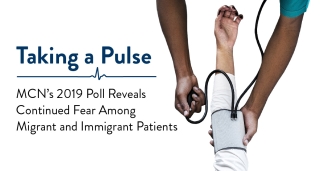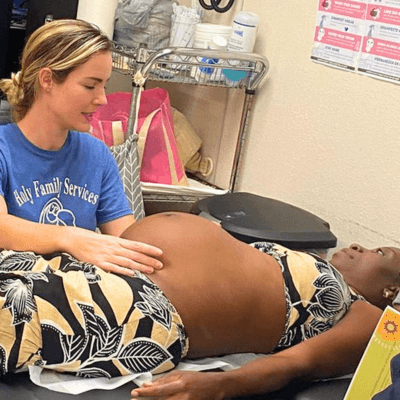Taking a Pulse: Migrant Clinicians Network’s 2019 Poll Reveals Continued Fear Among Migrant and Immigrant Patients
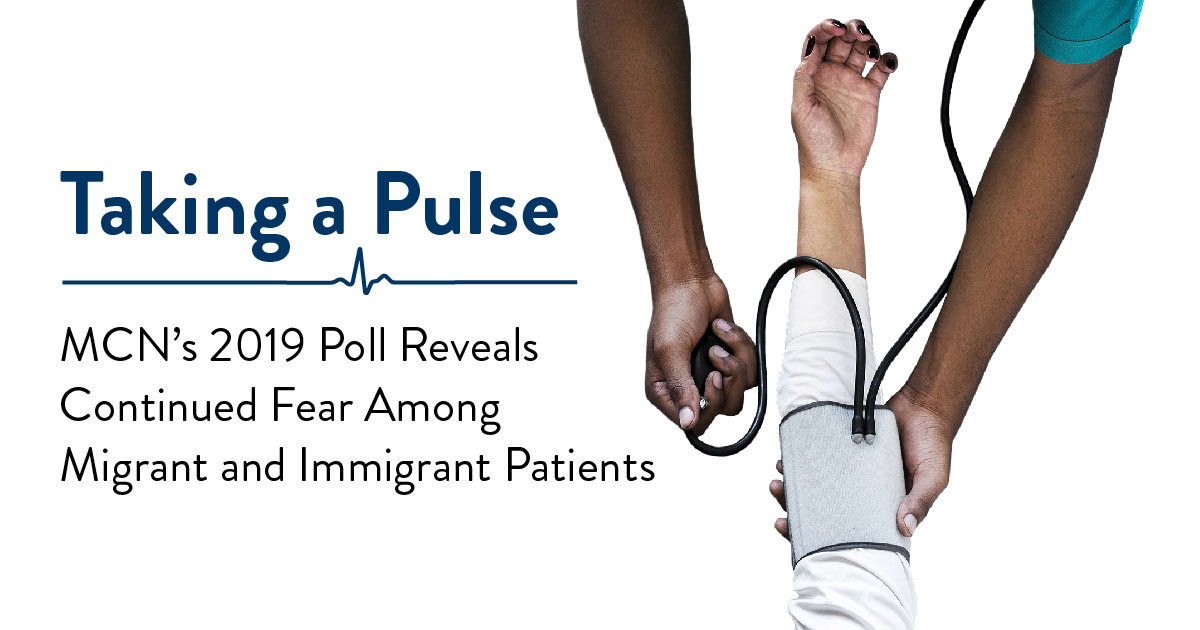
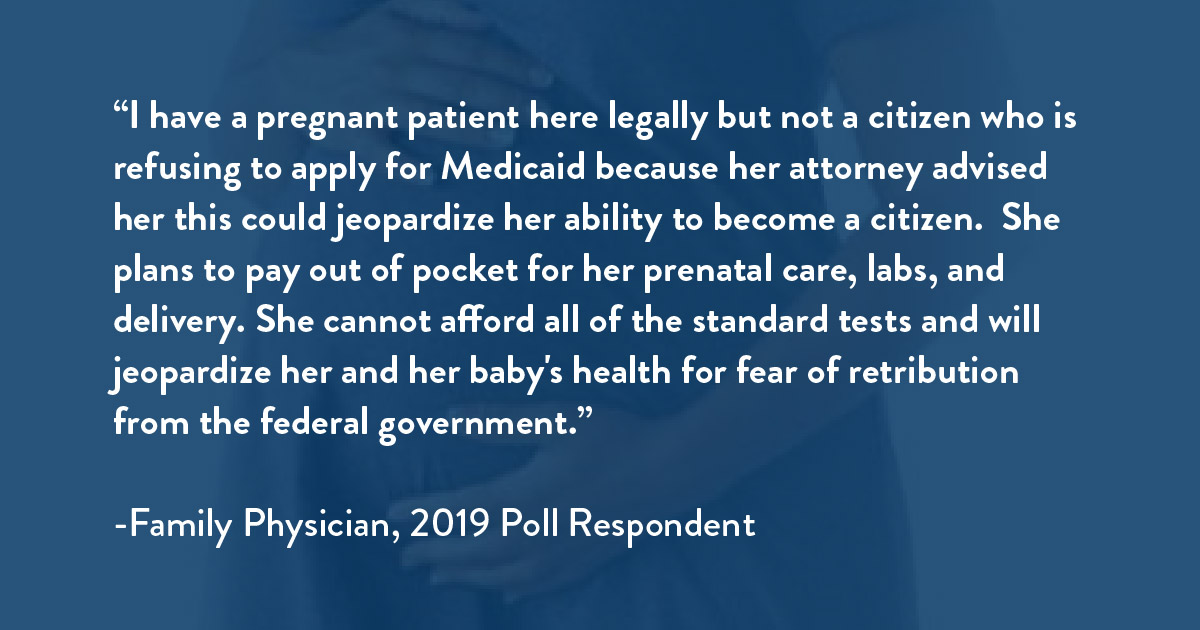
A new Migrant Clinicians Network poll of 71 health care providers and clinical staff from 16 US states and Puerto Rico found that 68 percent of respondents have seen a change in immigrant or migrant patients’ attitudes or feelings toward health care access or receiving care. Of those who indicated that they have seen a change, 40 percent have seen this change only in the last year, with 60 percent finding this change has occurred for more than a year. The question was one of three asked for the poll, sent across the country to clinicians serving immigrant and migrant patients. The poll was conducted in English and Spanish, and was open for seven weeks.
The number of respondents who have responded ‘yes’ to this question has stayed steady with a slight increase in the last three years. In MCN’s 2018 poll, 65 percent responded yes, and 35 percent said no. In 2017, 63 percent responded yes, with 37 percent responding no.
“Community health centers around the country and other primary care providers in the private sector continue to struggle valiantly to maintain access for some of the most vulnerable and misunderstood patients as they work with the immigrant and migrant population. Their resilience and determination is inspiring,” said Karen Mountain, MBA, MSN, RN, Chief Executive Officer for Migrant Clinicians Network. “I continue to be honored to be a part of this work, thankful for the glimpse into the current reality that our survey participants provide and their help in focusing our advocacy and programs.”
In their comments, respondents identified many of the same concerns that previous respondents had denoted in 2018 and 2017, particularly around fear, being afraid, or feeling fearful. The three terms were used 30 times in 2019 respondent comments, making it the most commonly used topical concern. They were the most commonly used topical terms in 2017 and 2018 as well.
When asked whether the respondent had noticed a change in the obstacles that immigrant and migrant patients face, 62 percent of respondents indicated yes, and 38 percent said no. The percentage shows a minor increase in positive responses from 2018’s question results, which showed a slight uptick from 2017 responses. In 2018’s poll, 57 percent said yes to the question, and 43 percent said no. In 2017, 48 percent said yes, and 52 percent said no. Over 68 percent of those who had noticed a change feel the change has occurred in a period of time greater than one year.
Clinicians voiced concerns that they believe their patients are expressing, including fear of enrolling for services and/or health benefits, fear of traveling to access services, and fear of utilizing services that are available to them. Financial costs and poor health insurance coverage were also highlighted. Some of the comments were stating the general fear that their patients face, without specifying the reason or result:
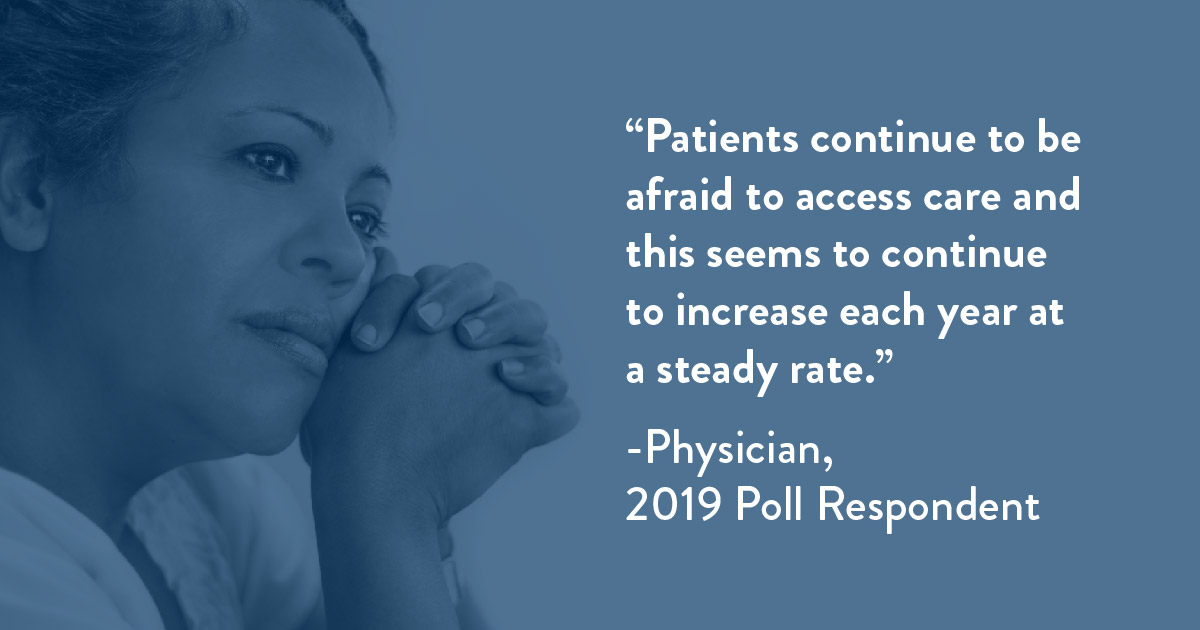
“Most are afraid to come to the clinic for care.”
“Clients do not trust the systems anymore.”
“Some patients will not leave their homes to come in for care.”
“They express more fear and anxiety regarding accessing services.”
Fear of traveling to the clinic to access services remained a major concern of respondents’ patients. Fear of ICE raides, immigration, checkpoints, or deportation while attempting to access services, say respondents, is a leading cause of patients’ avoidance of services. This concern was also strongly expressed in respondent comments from 2017 and 2018. Region-wide immigration enforcement was also called out as minimizing movement of migrant workers.
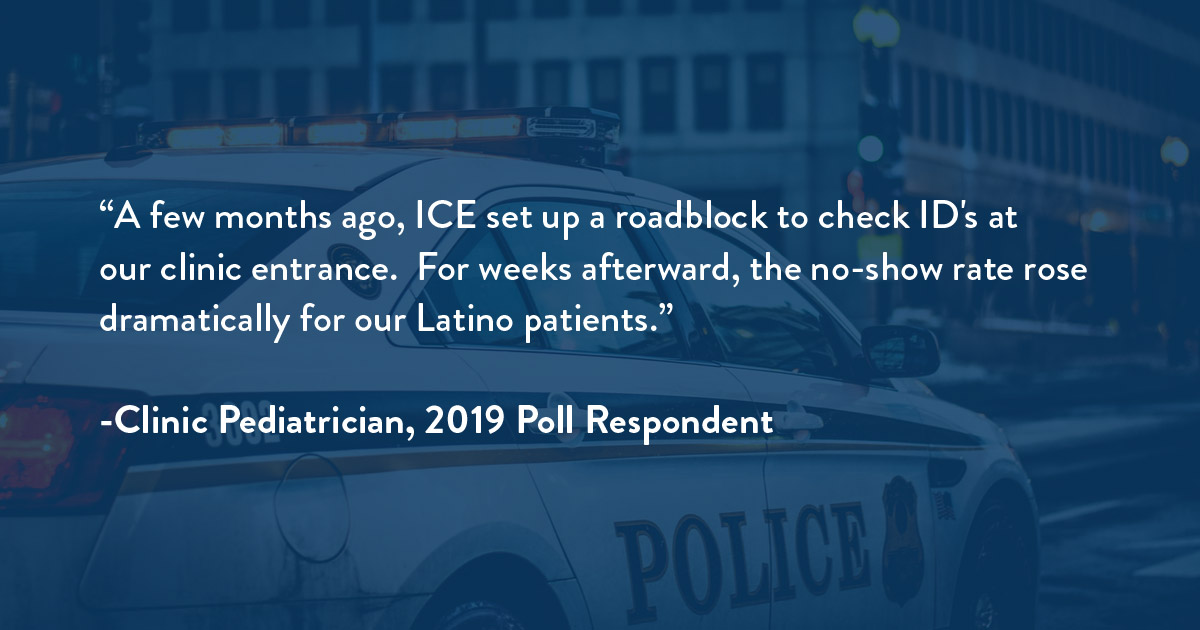
“Patients [are] worried about immigration stopping them when traveling to clinic.”
“Stricter rules and the fear of being deported for accessing health care.”
“Increased immigration enforcement has caused decreased freedom of movement. Migrants no longer come up from Florida to work.”
“Some of our patients experienced fear of leaving home to attend appointment especially if raids were occurring at that time.”
“Real and perceived risk of roadside checkpoints, ICE apprehensions.”
Fear resulting from the negative national and/or local community rhetoric around immigration was mentioned as well, although the concern was expressed less in the 2019 poll as compared to 2017 and 2018:
“Current anti-immigration rhetoric and actual policy proposals and programmatic work by the administration [are] scaring people away.”
Fear of enrolling for services and/or fear of utilizing services because of immigration status were more pronounced in this poll than previous ones. Two respondents specified that the discussion around public charge has affected patient choices.
“Some immigrants are afraid to sign up for health insurance.”
“[Patients are] afraid to apply to social services.”
“Patients are concerned about receiving care and how it can impact their immigration status.”
“Since Trump's election, public charge arguments and much more have had a chilling effect.”
“They are less willing to receive or sign up for services due to fear of retribution.”
Financial concerns, lack of or insufficient health coverage, increased paperwork, lack of time off of work, transportation issues, and other barriers and social determinants were also called out. These concerns were catalogued by clinicians who have seen changes in the last year as well as those who have seen changes occurring for more than one year:
“Bosses make it difficult to take time off for health care.”
“Transportation issues to health care centers and for referrals to other providers.”
“Increased paperwork requirements for eligibility.”
“Less funding for specialty care.”
“Local mental health agencies provide services to those without insurance, but not those without a social security number.”
“[Patients have] difficulty scheduling appointments with the new telephone system .. put them on hold for a long time.”
“More concern over cost, coverage, allowances, program usage by immigrant patients.”
As in previous years’ polls, several clinicians noted that the change has been for the better. One respondent found that community health access has improved.
The positive changes were particularly evident in the third question, which asked whether community view of the clinicians’ role has changed. While 59 percent of participants responded no, many of the 29 clinicians who responded yes indicated that the change was for the better. Some respondents indicated that community members have improved knowledge about the services the health center provides, or clinic reputation has improved. Others made comments about anti-immigration sentiment, community support for immigrants, advocacy, and financial concerns.
“More agencies, community members are aware of services we provide.”
“We have received increased community support as members ‘fight back’ locally against our current administration's stance…”
“Given the threats against immigrant populations, I feel a bigger urgency to speak out be an advocate.”
“Gradual, over several years -- word of mouth on care given.”
“We updated the criteria to our care management and our extending services to all sorts of chronic conditions!”
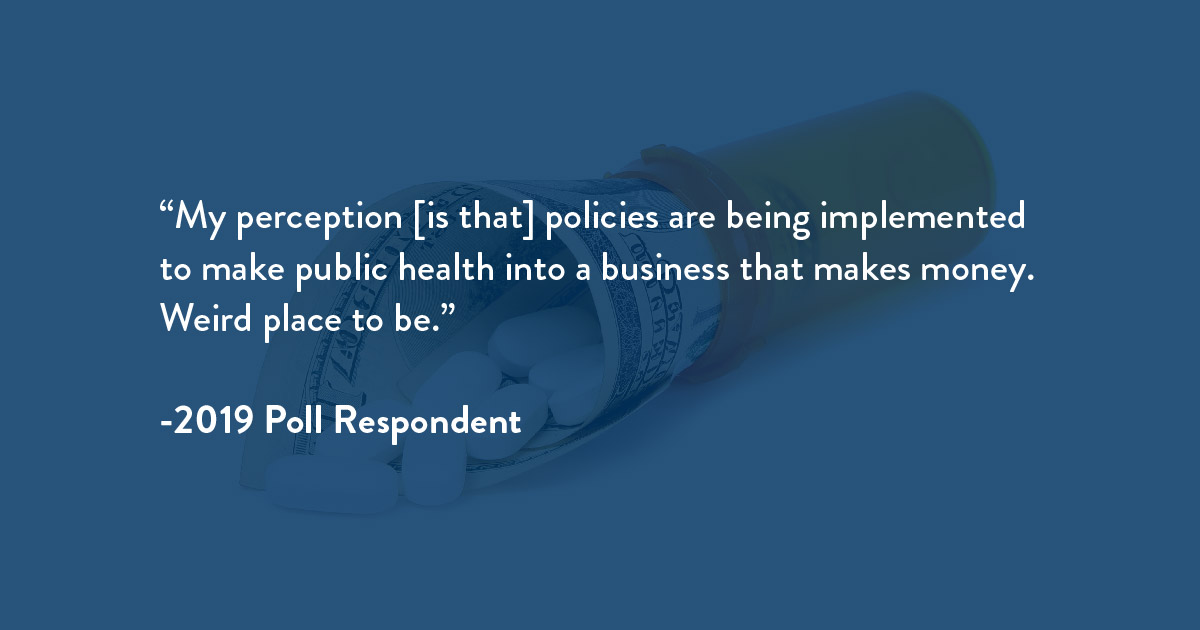
Contact Claire Hutkins Seda at Migrant Clinicians Network for more information about this poll:
chutkins-seda@migrantclinician.org.
2019 Clinician Poll Results
2018 Clinician Poll Results
Like what you see? Amplify our collective voice with a contribution.
Got some good news to share? Contact us on our social media pages above.
Return to the main blog page or sign up for blog updates here.
- Log in to post comments
